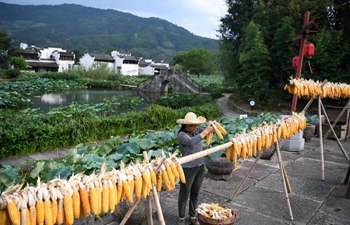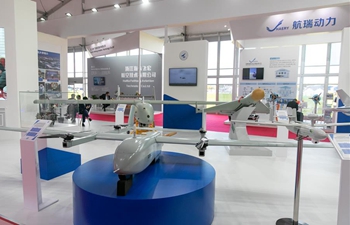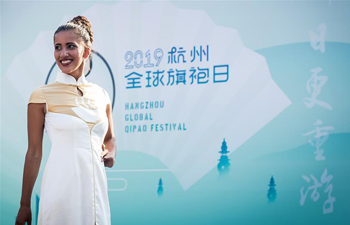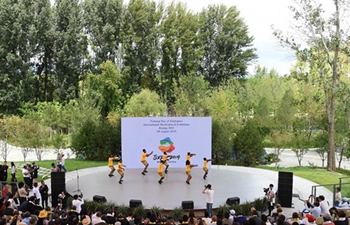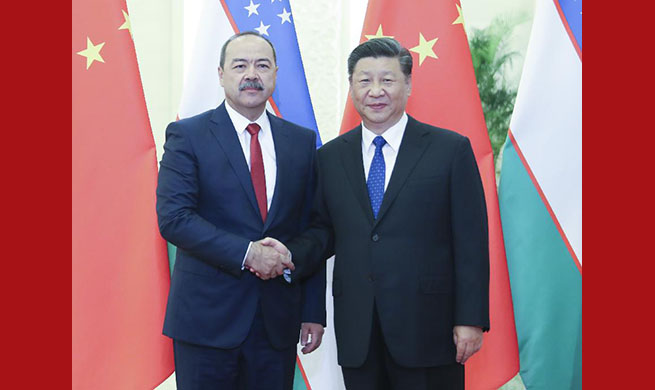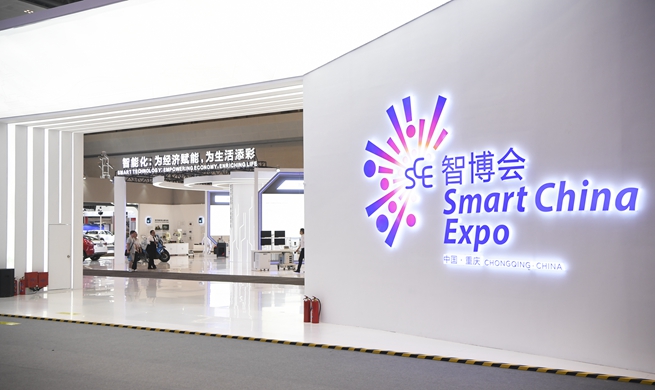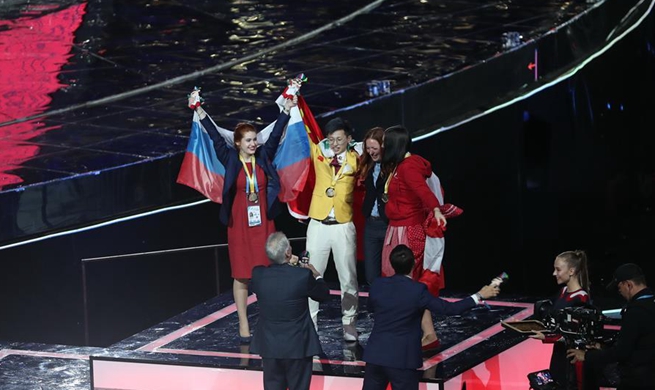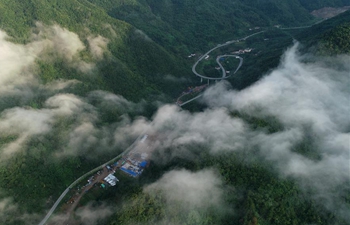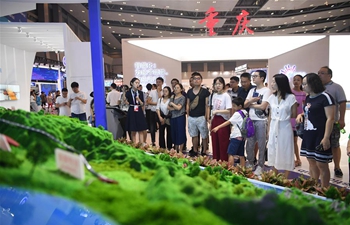TOKYO, Aug. 29 (Xinhua) -- Shipments from Japan to South Korea of a sought-after chemical now subject to tighter export controls plummeted in July from a month earlier, the government said in a report on Thursday, as ties between both countries continue to be strained.
According to Japan's Finance Ministry, shipments to South Korea of hydrogen fluoride tumbled 83.7 percent to 479 tons in the recording month, as a result of Japan's tighter export controls.
In terms of the export value, the ministry said it also fell 32.6 percent to 400 million yen (3.78 million U.S. dollars), in a sign the tightening of controls, which came into effect from July 4, on three chemicals bound for South Korea, are having significant financial ramifications.
Hydrogen fluoride is one of three chemicals Japan decided would be subject to stricter export controls, with Tokyo citing national security reasons for the move, although it is widely believed to be a response to a wartime labor dispute between both countries.
South Korea's top court ordering some major Japanese firms to compensate South Korean plaintiffs over forced wartime labor during Japan's 1910-1945 occupation of the Korean Peninsula, with lawyers being allowed to seize the assets of some Japanese firms, initially raised the ire of the Japanese side.
Japan, for its part, has claimed the rulings are not in line with international law and run contrary to the foundation of friendly and cooperative relations between the two neighbors since the 1965 normalization of diplomatic ties.
Japan maintains the matter of compensation for wartime labor was "finally and completely" resolved under the pact.
The Japanese side initially believed Seoul had intentionally missed a deadline to establish an arbitration panel to settle the dispute over wartime labor.
Japan had tried to maintain that the initial tighter export controls of some materials used in high-tech products were not in retaliation for South Korea's mishandling of the arbitration situation, and under the new restrictions, Japanese manufacturers now have to file individual applications for exports to South Korea of fluorinated polyimide, hydrogen fluoride and resists.
These products are commonly used in displays and semiconductors, mainstays of South Korea's tech-forward economy and integral to some key supply chains that flow from Japan and through South Korea and onward.
Regarding shipments and export values of the other two materials, the Finance Ministry here does not have individual data, although South Korean manufacturers like Samsung Electronics Co., and others involved in the semiconductor and display businesses, are likely to be hurt by Japan's stricter controls economists have said.
Japan on Wednesday also removed South Korea from its "whitelist" of nations entitled to simplified export control procedures, further raising the stakes in a bitter diplomatic and trade row between the two neighbors.
The removal of South Korea from the list marks the first time Japan has revoked a country's trusted trade status, and the move, approved by the cabinet of Japanese Prime Minister Shinzo Abe, now means South Korea will no longer enjoy minimum trade restrictions on sensitive goods including electronic components.
Japanese companies must now receive case-by-case approval from the Ministry of Economy, Trade and Industry of Japan before such goods can be exported.
Seoul had been on the whitelist since 2004 and has been guaranteed preferential treatment in terms of importing certain products from Japan.
The South Korean government had urged Japan not to proceed with its removal from the whitelist, which it estimates could have a negative bearing on more than 1,000 items in key industries spanning its auto and petrochemical sectors.
South Korea, for its part, has decided to take Japan off its own "whitelist" of trusted trade partners and announced tighter restrictions for importing coal ash and some waste recycling materials from Japan.
Last week, the South Korean government also announced its decision to scrap the General Security of Military Information Agreement, or GSOMIA with Japan on exchanging classified military information, as the tit-for-tat dispute continues to escalate.
